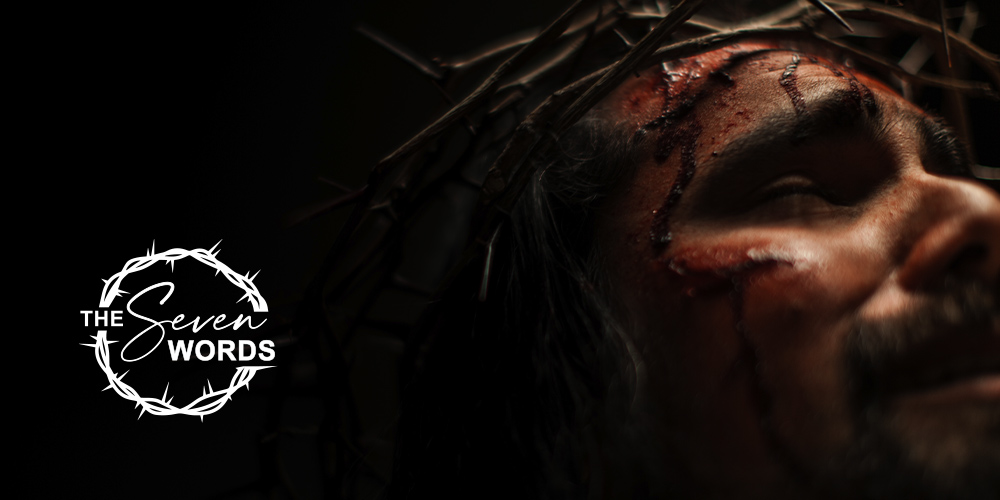 |
The trial had finally ended. As I prepared to leave the parking garage after the sentencing, one of the jurors stopped me. “Were you with the man who was on trial?” she asked. She added, “They won’t send him to jail, will they?” She went on to explain that she did not believe that he was guilty, but she had been pressured by the foreman of the jury. They all had. They had to convict him of something or they would never get to go home.
Months later, I sat across the table from the man in an orange jumpsuit. He just could not understand his predicament. We were in a dark and dirty meeting room, but he assured me that the meeting room was a five-star conference center when compared to the room where he spent most of his time. How was he to make any sense of it? It was all a lie, and many had believed the lie. His attorney had neglected his case but gladly took nearly all the money that he had. The justice system had failed him miserably. He had been convicted of a crime that he did not commit. He was rejected by society and put away in a facility that was not fit for human habitation. At least for a time, he even wondered if his God had rejected him. How was he to make any sense of his predicament? He felt that he had been forsaken.
The greatest of all injustices
Of course, the man had not been forsaken by God, but there was one who was. It was the greatest of all injustices. From the Fall, God had looked at his fallen creation with compassion and love. Our God did not leave Adam and Eve forsaken in their sin but came to them with a promise. It was a promise that contained his solution for sin. Christ Jesus willingly put that plan and promise in motion in the fullness of time. He left the glory of heaven. He took on our flesh so that the eternal plan might come to fruition. Our Shepherd would become our Lamb so that the punishment for our sin might be on him instead of us.
We see signs of the depth of his suffering. We find our Savior with his disciples in the garden on the night before the cross. “Could it be possible? Is there any other way to accomplish our mission? Please take this cup of suffering from me.” We are told that his soul was overwhelmed with sorrow to the point of death. He was looking into the reality of what lay ahead, and the weight of it was overwhelming. It pressed to the very core of his being.
The full price and punishment for our sin was placed upon the Innocent One.
While we cannot grasp the full extent of our Savior’s substitutionary sacrifice, we are hit with its reality in the words before us. The words that once pierced the darkness now pierce the heart of every believer: “My God, my God, why have you forsaken me?” (Matthew 27:46).
He came for sinful humanity, but they had turned on him. He was rejected in his hometown. The fickle crowds had so quickly turned against him. The religious leaders had rejected the One who defined religion. The justice system had failed him. The provincial ruler had convicted and condemned the One who was the Lord of lords and King of kings.
Even his disciples could not be counted on. They were sleepy when he most needed them to be awake. They stood mute when he needed confession. While they said that they would fight to the death, they ran for their lives when things became difficult.
And now, his life was seeping from his body as he hung on the cross.
But none of that compares to the soul-piercing cry before us, “Eloi . . . Eloi . . .” It seems a cry in anguish and desperation. What might Jesus be thinking? “My God, my God. I can understand the religious leaders not understanding me. Their treatment of me does not surprise me. I have seen their hearts. I understand the Roman soldiers and even Pilate treating me the way that they have. They don’t really know any better. They don’t have any idea what they are doing. I can even understand my weak and frail disciples running for their lives. But you, my heavenly Father? How could you? Your justice is perfect, and I am innocent. This is our plan. I am serving you in this mission. You cannot turn away from me now.
“Why have you forsaken me?”
The heart of the gospel
We cannot fully understand. It is not that God has not given us some background material to help in our understanding. The prophet Isaiah spoke clearly as God provided him eyes to the future. He was pierced for our transgressions. He was crushed for our iniquities. The punishment that brought us peace was placed upon him (Isaiah 53:5). Pierced . . . crushed . . . punished . . . These words begin to plumb the depths of the grim reality of sin’s payment. The apostle Paul provides perspective when he declares that Christ was made sin for us so that we might become the righteousness of God (2 Corinthians 5:21). He became sin. It defined him. As he bore the sins of every human who would ever live, he became sin.
But forsaken by God? What does it mean to be separated from God’s presence, his grace, and his love? We see the harsh demand of God’s perfect justice. The horrors of hell were pressed upon Jesus. There was no shortcut. There was no possible pardon or writing off the debt. The debt of sin had to be paid. If that payment was not to be pressed upon us, it would have to be pressed upon him. He became what he was not so that you and I might become what we were not.
This is the very heart of the gospel. It is where law and gospel find the perfect resolution. The full price and punishment for our sin was placed upon the Innocent One. In him we find complete freedom and peace. Through eyes of faith, we can look upon the cross and understand the fullness of our Savior’s love for us. In faith, we see the full revelation of our God in Christ. We find incomprehensible and amazing grace. We find security and confidence. We find peace with our God and purpose for our lives.
Eventually, that man mentioned earlier was released from prison. Even now, I don’t think he understands why he went through all that he did. I do know that he now looks to the cross and sees the fullness of God’s love for him. He sees it in a Savior who loved him so deeply that he took his sin upon him so that he might live in peace and reside in God’s presence for eternity. We worship a Savior who was forsaken so that we might never fully understand the depths of what it means to be forsaken.
Author: Charles Westra
Volume 109, Number 03
Issue: March 2022







